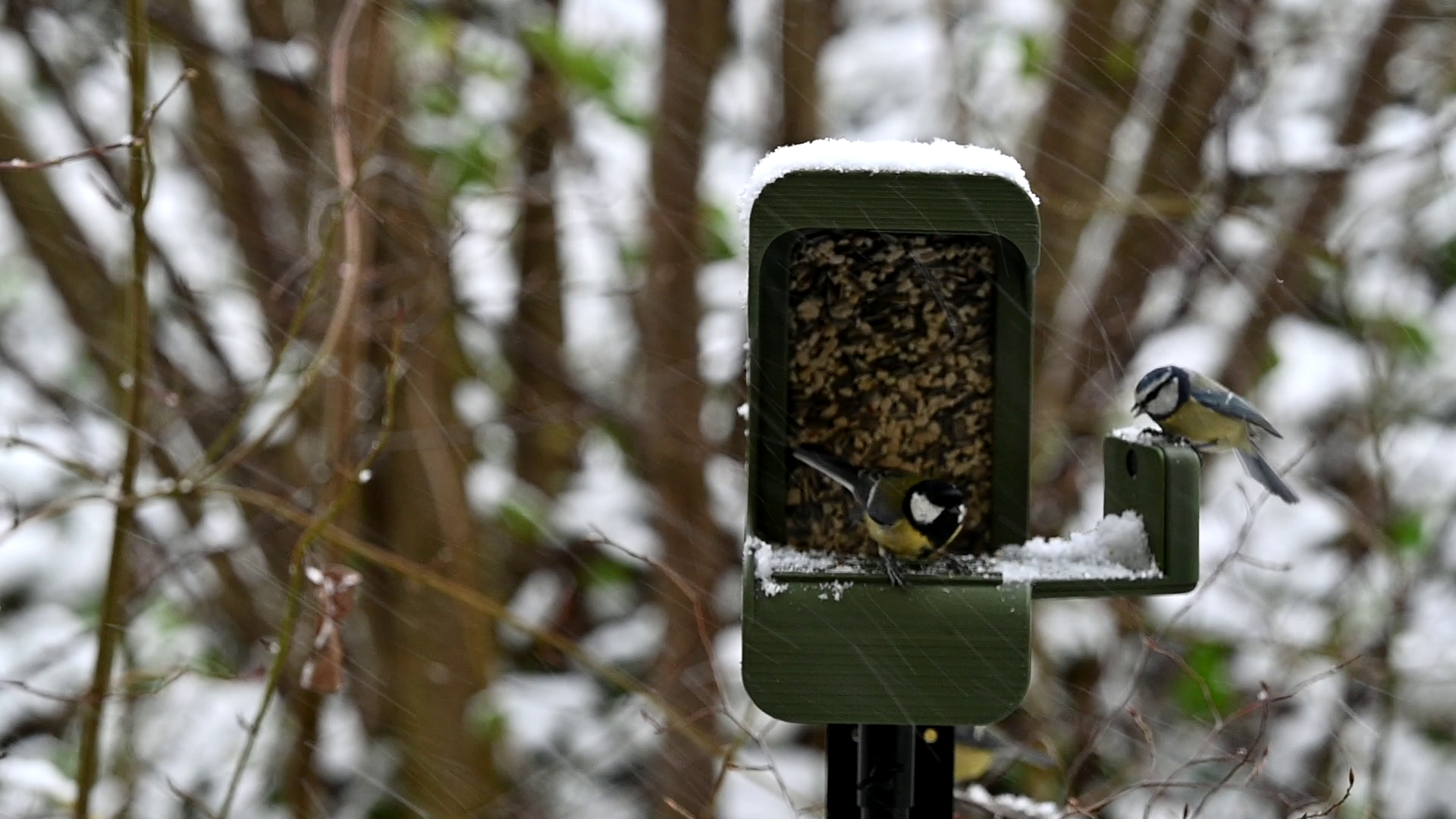My Neighbourhood Flock
A Citizen Science approach to large-scale monitoring of birds
Context
Effective monitoring of animal populations is critical for predicting the impacts of climate change and anthropogenic effects on wildlife, and in designing conservation actions. However, monitoring is extremely costly, usually involves capturing animals to mark them for individual recognition and tracking, and is thus often limited to the most at-risk species or to geographically localized long-term study populations. Consequently, we still have remarkably little insight into the factors that contribute to the globally reported declines in bird populations.
About the project
The aim is to establish the use of our smart bird feeder as a platform for large-scale Citizen Science driven monitoring of wild bird populations. Given that millions of people in Europe use bird feeders to attract wild birds, the project has the potential to collect the largest ever individual-level dataset on wild animals. This dataset will enable us to address fundamental questions in ecology and evolution while providing real-time tracking of the impacts of climate change and other threats, such as infectious diseases, which have been challenging to study due to the lack of individual-level wildlife data.
Besides the scientific contribution to wildlife monitoring, the project also aims to connect people with their local wildlife. The smart feeder connects seamlessly to our mobile app, allowing users to observe and engage with their local bird flocks. This app provides access to videos and pictures of the birds visiting the feeder and to information about each individual bird, fostering an unique one-on-one connection between bird enthusiasts and their local birds.
The smart feeder is now being tested with a small initial group of bird enthusiast. The aim is to fine-tune the smart feeder, improve the ability to manage the large amount of various data types collected at these feeders and to improve the mobile app to make sure that is easy and interesting to the users. Accomplishing these goals will allow to create a smart bird feeder that can be mass-produced in the near future. By the end of this coming winter (2024) the project team aims to have a smart bird feeder that can be distributed to a wider audience across Switzerland and other European countries.
Participate in the project
The project is open to everyone that can place a bird feeder at their household (e.g. in the garden, balcony, windows). From September to November 2024, the project will be going through a testing stage that is open to only an initial group of early-adopter citizens. The main contribution of these initial participants is to help the project team prepare their product to a larger-scale production. By the end of this Winter (2024), the project expects to have a product that can be distributed to any citizen in Europe.
Participants will have access to all the features of the smart bird feeder. They will be able to obtain videos and pictures of the birds visiting their gardens, while also have the opportunity to name each individual birds and access information about them. With the smart bird feeders, users will not just simply observe the birds in their garden, they will make true connection to their flock.
Besides having access to the multiple interactive features of the smart bird feeder, users will also have access to all the publication outcomes from the scientific works resulting from the data collected from these smart devices. The project will commit to publish in open-access so that everyone has a direct access to the outcomes of this project. Furthermore, a newsletter will be distributed through the mobile app, summarizing the current research agenda, ongoing projects and publications.

